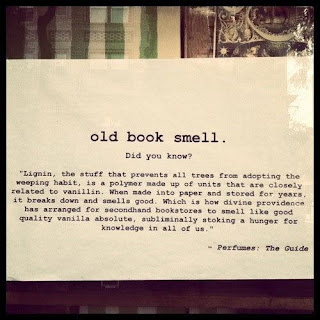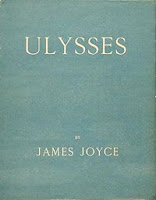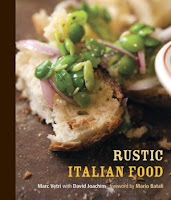 Review: Extra Virginity, The Sublime and Scandalous World of Olive Oil
Review: Extra Virginity, The Sublime and Scandalous World of Olive Oil
When I was a kid, margarine was all the rage and butter was seen as an evil fat. I remember my mother never wanted us to eat margarine, but stuck to butter because it had ingredients that were natural and could be pronounced without a dictionary.
Our idea of "healthy fats" has changed dramatically since those days, with olive oil the clear winner. Given that olive oil is literally a pressed fruit juice and the only oil made from fruit rather than seeds, it is a natural choice that offers vital nutrients, particularly when the oil is "extra virgin."
However, Tom Mueller says, we've been duped with oils of "dubious virginity." It seems virginity is a fluid thing (sorry).
For thousands of years, olive trees have been a symbol of peace and olive oils have been used for religious observances, fuel, food, and for beauty products. In fact, 7,000-year-old petroglyphs have shown men wearing garlands of olive branches.
Olive oil has a rich history and new modern oil-making techniques have provided the best and healthiest oil in history. But there's a fly in the ointment. Sixty billion (with a B) Euros are made each year from selling counterfeit or adulterated Italian foods – and olive oil is one of the most frequently adulterated foods in the European Union.
For example, for 20 years Spain has produced more olive oil than Italy, but it has shipped that oil to Italy to be packaged as "100% Italian," which is illegal. Worse than that, Mueller says, an estimated 98% of olive oil sold in Italy as extra virgin is not actually that top-grade oil. And those beneficial, healthful components of olive oil are only found in the extra virgin variety.
What has happened is that, like with any other valuable product, people have found a way to take the more expensive top-grade product and cut it with lower-grade olive oil, or even seed oils, allowing them to sell it as extra virgin when in fact it may contain hardly any olive oil at all. That cheap oil has flooded the market, choking out the traditional and legitimate, and often family-owned, oil makers.
Groups such as the EU and the International Olive Council have tried to enforce rules that protect extra virgin oils, but pressure from huge oil conglomerates and traders have forced them to back down.
Reading about the oils that are sold throughout the world – and in most of our grocery stores – as healthful olive oils will make you sick to your stomach. Some of the oils are "deodorized" with chemicals such as hexane, as well as toxins and known carcinogens. Those oils are also often used in pizza, pasta sauce, and snack foods. Oils that have words on them like "pure" or "light" actually have been revealed to have all of the health benefits, and the olive oil itself, processed right out of it.
It's a legal fraud that has been allowed to happen because we've all been conditioned to accept the taste of the inferior oil as the higher grade olive oil. Even top chefs with Michelin stars can't recognize the difference between the two. The economic crisis around the globe has only added to the pressure to keep olive oil prices very low.
Mueller takes us on a fascinating educational journey through the world of olive oil, while also putting a very human face on the crisis as he writes about small family businesses that believe in offering an artisanal and healthful product, but who are being squeezed out of the business.
As consumers become more interested in where their food comes from and how it's made, one can only hope that they'll begin asking about the origins and composition of the olive oil they buy. After all, a new appreciation for craft spurned a renaissance for brewers, wine makers, cheese makers, and more. Let's hope this oil education does the same for the families around the world who are crafting true extra virginity.
(2011 - W.W. Norton)
Recipe: Olive Oil Crackers
After reading
Extra Virginity, you may despair of ever finding true extra virgin olive oil anywhere in the U.S. (I can tell you that I will never again use some of the bigger, more well-known brands). Once you do find it (try olio2go.com), you can either have a taste testing party as described in the book – with lots of slurping and strange noises – or you can make this recipe. I vote for making the recipe, but giving your oil a taste is a good idea. Mueller says that there are three attributes of a good-quality oil – a pepper bite, bitterness, and fruitiness.
1 1/2 cups semolina flour
1 1/2 cups all-purpose flour
1 teaspoon sea salt
1 cup warm water
1/3 cup extra virgin olive oil (you can used oils infused with other flavorings, too)
Whisk together the flours and salt. Add the water and olive oil. Using your hands, mix and knead the dough on a floured surface until it is smooth but still a bit sticky, adding water as needed. Roll the dough into a ball and then cut it into 12 pieces. Rub each piece with olive oil, also rolling it into a ball. Put all pieces on a plate and cover with a dishtowel. Let dough rest for about 45 minutes. Preheat oven to 450 degrees.
Once the dough is ready, roll the dough into a long flat strip using a rolling pin until it is thin enough for a cracker. You can cut the dough into any shape you like with a pizza cutter. Put the pieces of dough onto a cookie sheet that has a thin layer of cornmeal on it. Stick a fork into the cracker pieces several times. And now you can lightly brush each one with olive oil and sprinkle with any number of toppings (salt, herbs, Parmesan, whatever you like). Bake until the crackers are a golden colored – the timing will vary based on the thickness of your crackers. Be sure to let them cool thoroughly because that is what makes them crispy.
 Back in the day, I had to be a little creative about my travel. I would buy a book in the airport, leave it on the plane, and buy another when I landed. Or I would give myself a hernia by packing 10 books in my carry-on bag. Or I would run to the nearest book store when we arrived in our destination city. And yes, I have paid the fees for overweight bags because I had too many hardbacks in the suitcase.
Back in the day, I had to be a little creative about my travel. I would buy a book in the airport, leave it on the plane, and buy another when I landed. Or I would give myself a hernia by packing 10 books in my carry-on bag. Or I would run to the nearest book store when we arrived in our destination city. And yes, I have paid the fees for overweight bags because I had too many hardbacks in the suitcase. 














